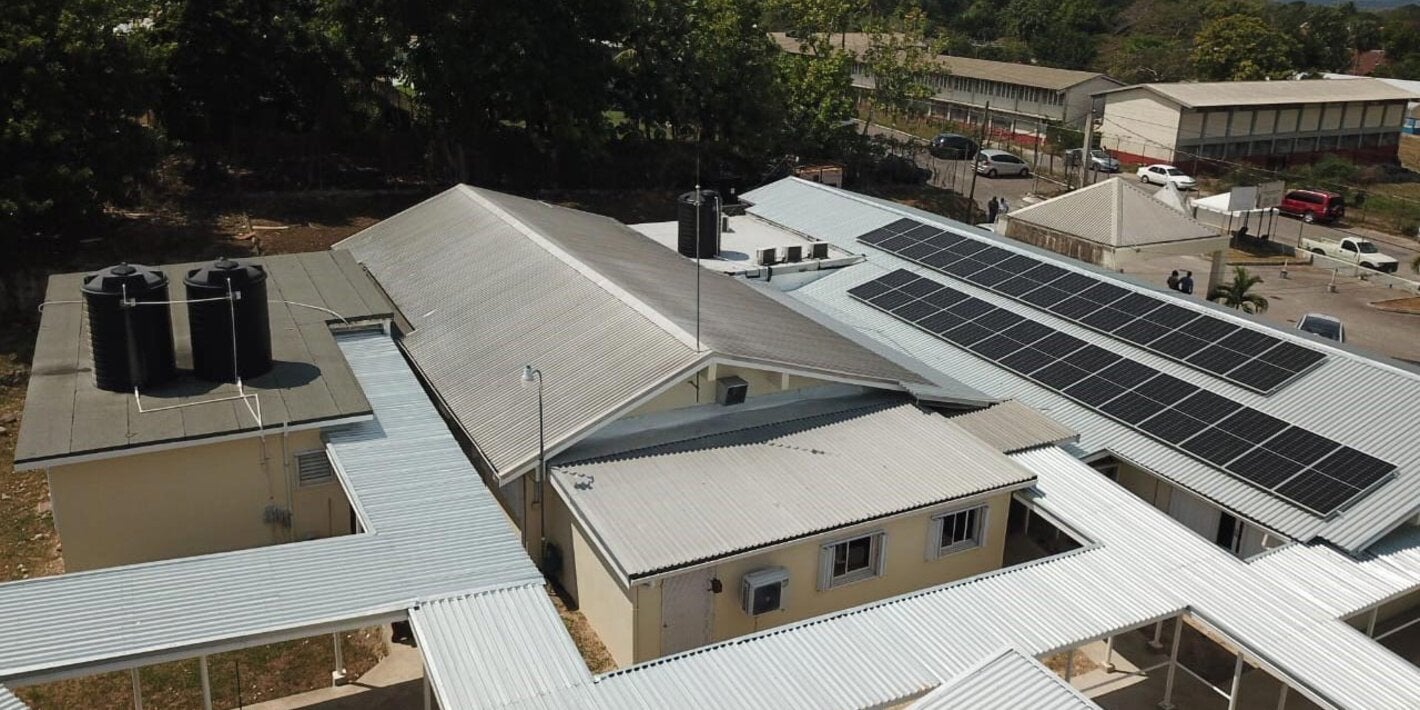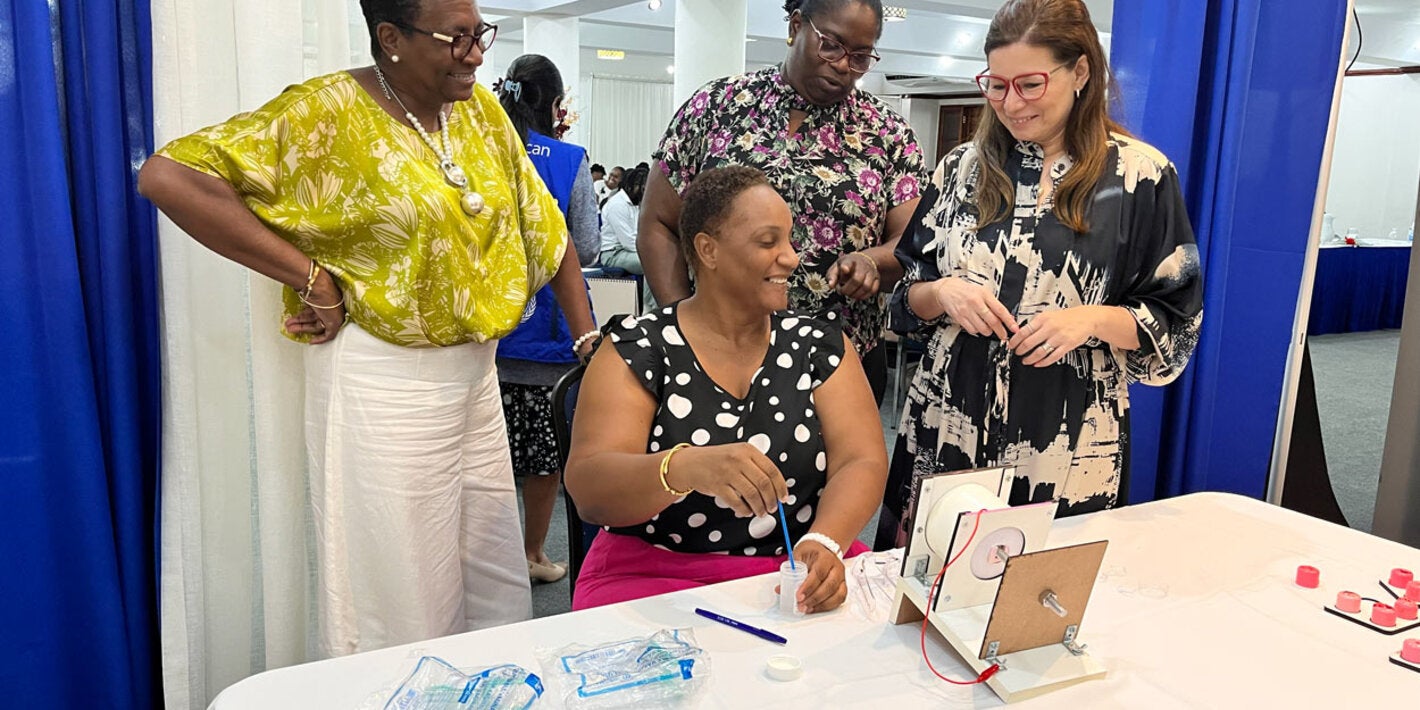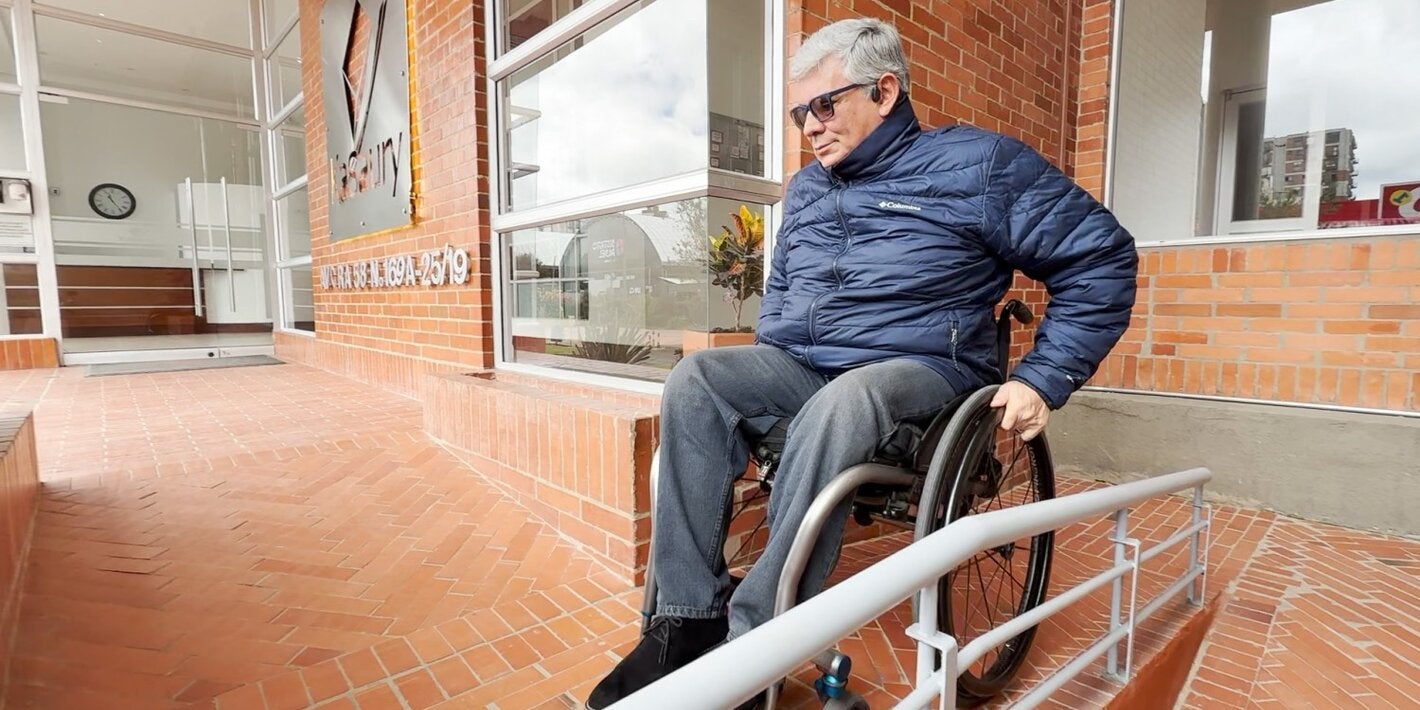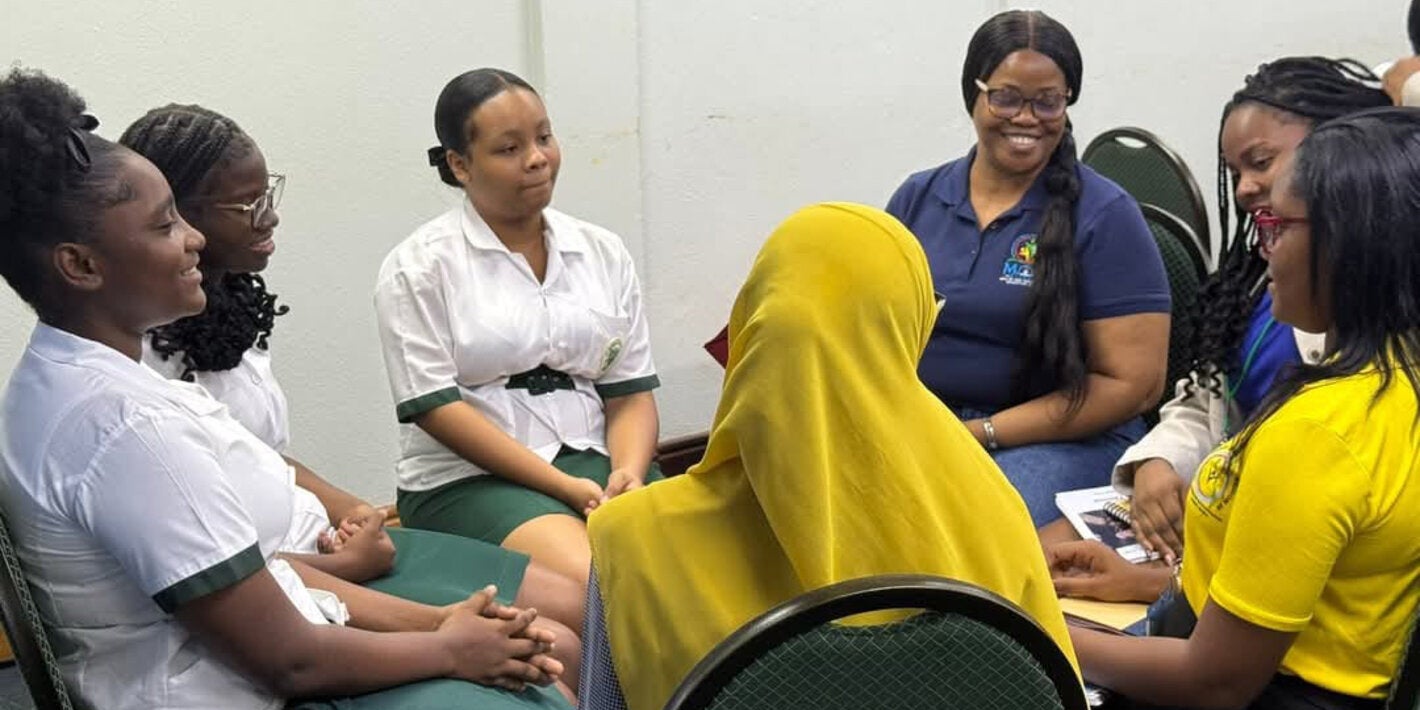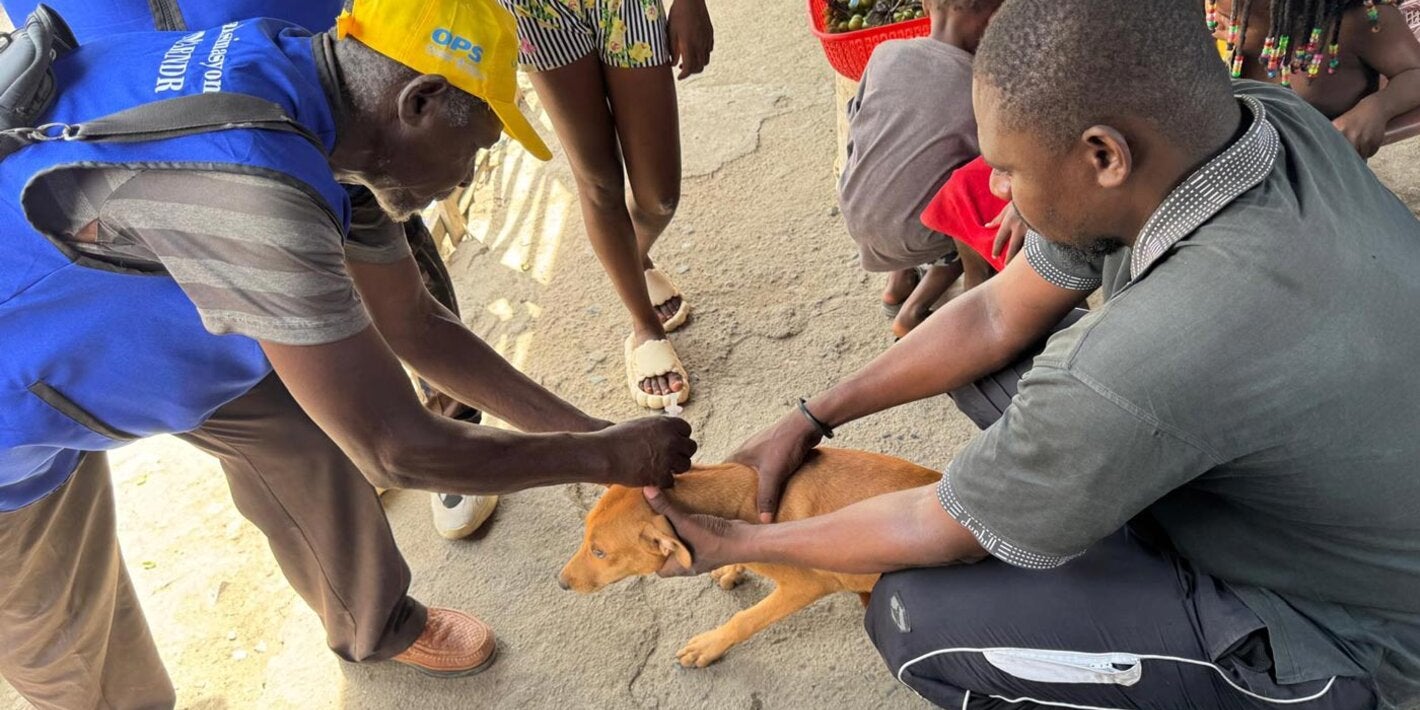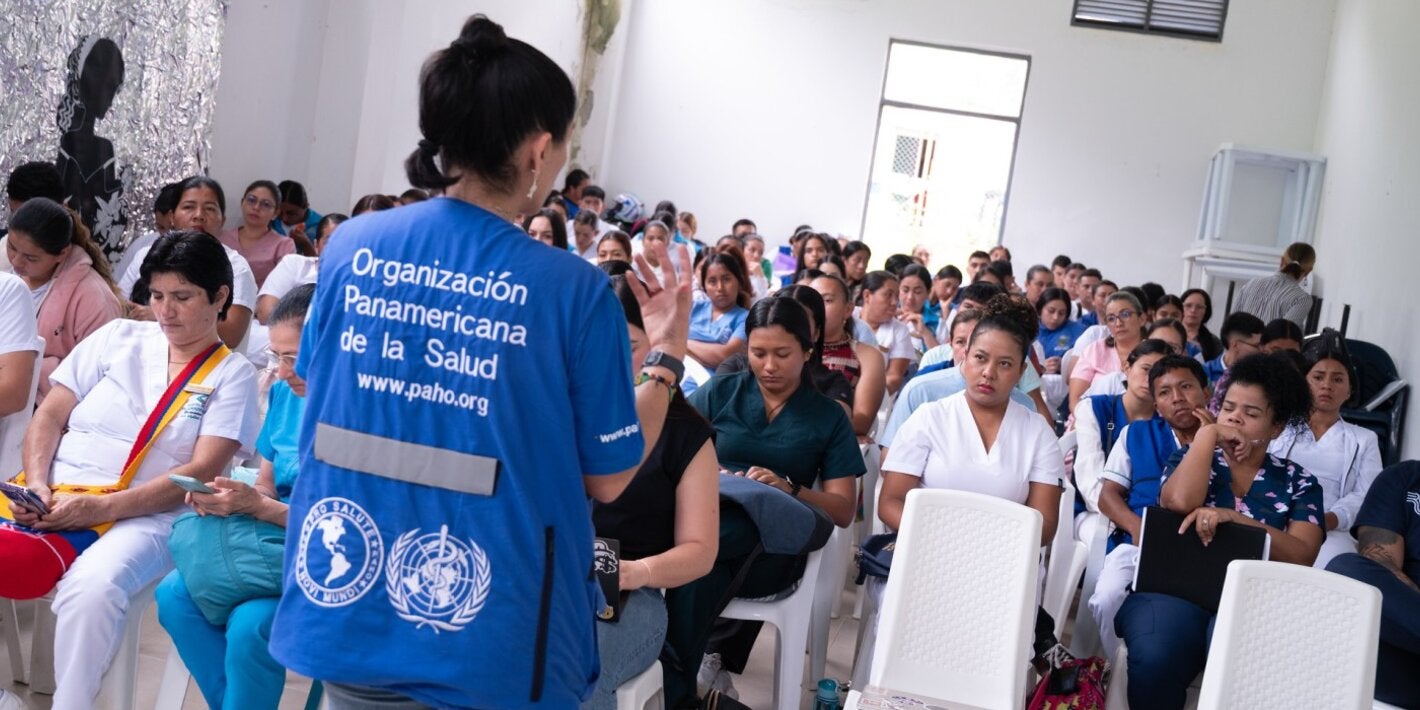Regional Stories
How health facilities retrofitted under a PAHO and UK-funded partnership maintained essential care delivery following Hurricane Melissa— November 2025 —
— November 2025 —When 38-year-old Glennis Bliebe began to experience unexplained bleeding last year, she knew something wasn’t right. “As a woman, you have to notice when these things happen in your body,” she recalls.
When Modeline left her home early that Tuesday morning to sell goods at the market, she had no idea it would be the last time she saw her young daughter alive.— November 2025 —“She had diarrhea and was vomiting a bit,” Modeline recalls quietly. “But it seemed to stop. The next day, I thought she was getting better. When I came back from…
Manuel Durango, 53, and Ricardo Becerra Sáenz, 65, do not know each other, but they share a common story. Both live in Bogotá, the capital of Colombia, and both have dealt with the repercussions of polio, a disease that shaped their lives since childhood.— October 2025 —Polio, a highly contagious disease caused by a virus that attacks…
October 2025Facing one of the world’s highest suicide rates, with support from the Pan American Health Organization (PAHO) and UNICEF, Guyana is advancing efforts to better equip teachers and health workers to identify and address mental health issues early—before they reach crisis levels.
PAHO steps up efforts to support the country’s authorities in breaking rabies transmission through epidemiological surveillance, large-scale dog vaccination campaigns, and community education.— Port-au-Prince, Sept 2025 —Last July, in the remote locality of Butête, in southern Haiti, nine-year-old Jonas (whose name has been changed to…
In the midst of a yellow fever outbreak in Tolima, Colombia, training in assertive communication for 526 health workers, improved vaccination coverage in hard-to-reach areas and changed the approach to tackling vaccine hesitancy.— September 2025 —
An international workshop supported by PAHO convened medical teams from five countries to strengthen their skills and improve access to this life-saving procedure for children.
August 2025"When the diarrhea started, I was so weak I could barely stand, the pain was unbearable," recalls G., a resident of one of Haiti’s many internally displaced persons (IDP) sites, whose name has been withheld to protect his identity.

